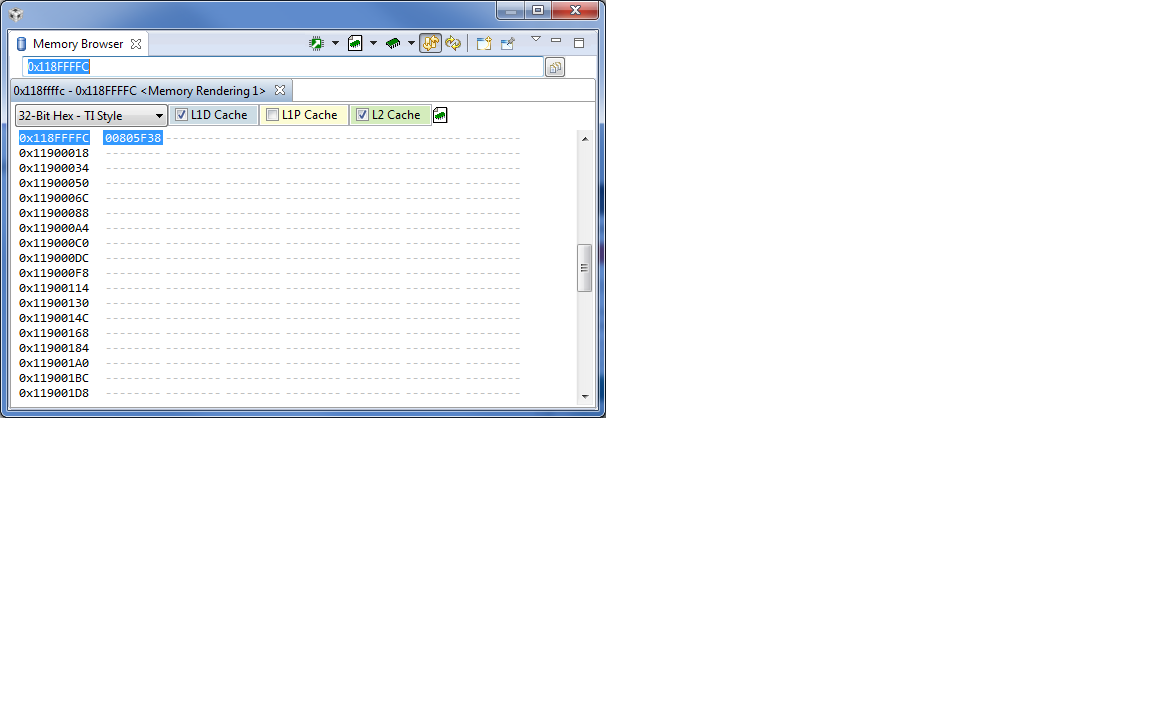Dear all,
I am working on evmc6657 board and I am going through the examples that load one simple hello word from core 0 to core 1.
I have used the code that is included in the examples under folder /srio
The main routine of this code is the following
coreNum = platform_get_coreid();
if (coreNum == 0)
{
// platform_uart_init();
// platform_uart_set_baudrate(BOOT_UART_BAUDRATE);
printf("%s%s\n\n", version_msg, version);
/* Unlock the chip registers */
DEVICE_REG32_W(KICK0, 0x83e70b13);
DEVICE_REG32_W(KICK1, 0x95a4f1e0);
/* Writing the entry address to other cores */
for (core = 1; core < NUMBER_OF_CORES; core++)
{
sprintf(boot_msg, "\r\n\r\nBooting Hello World image on Core %d from Core 0 ...", core);
printf("%s\n",boot_msg);
DEVICE_REG32_W(BOOT_MAGIC_ADDR(core), (uint32_t)write_boot_magic_number);
/* Delay 1 sec */
platform_delay(1);
}
for (core = 1; core < NUMBER_OF_CORES; core++)
{
/* IPC interrupt other cores */
DEVICE_REG32_W(IPCGR(core), 1);
platform_delay(1000);
}
}
else
{
write_boot_magic_number();
}
I use the CCS6 . Using the debugger I noticed that the code enters only in the the branch that is related with the core 0 and never in the branch that is related with core1. Are any additional setting that are needed to see that the second core is loaded and run?
I have removed the code for the UART. I want to test only that the code enters in the else
Best regards
George




